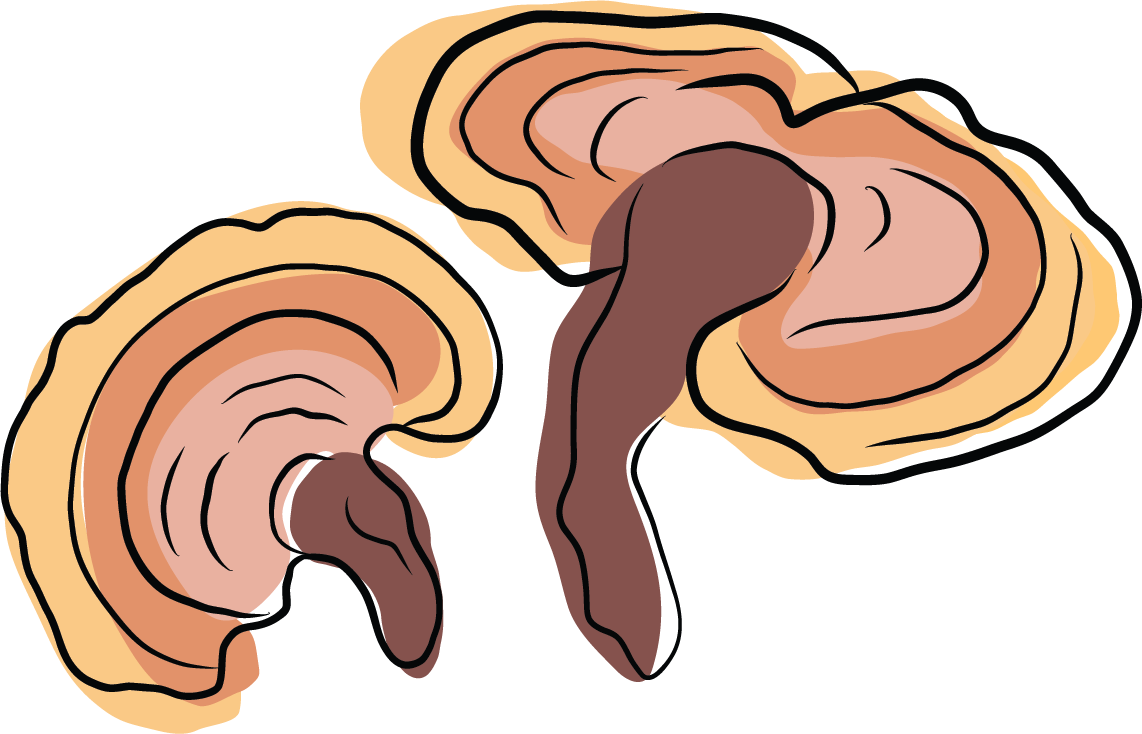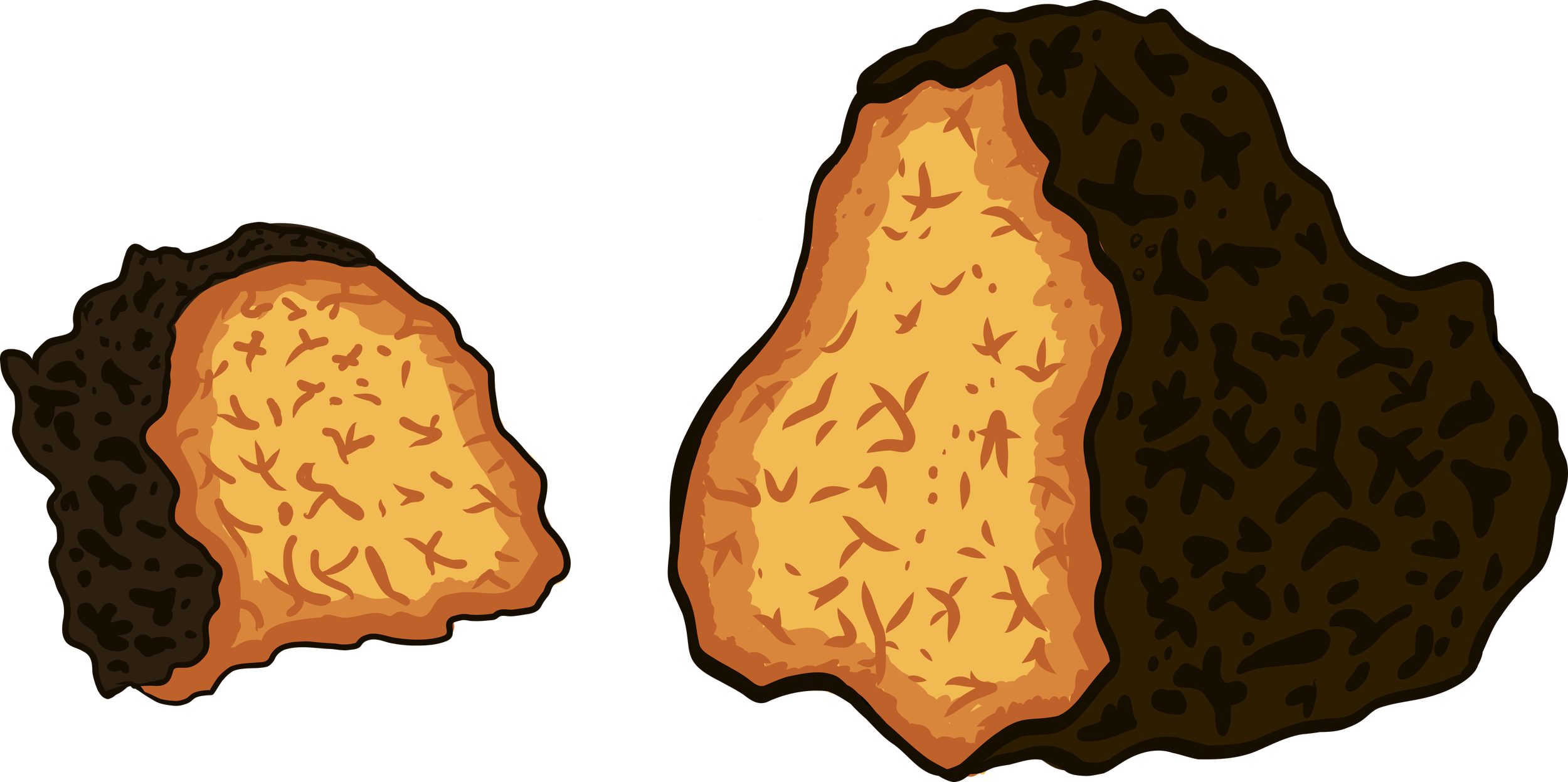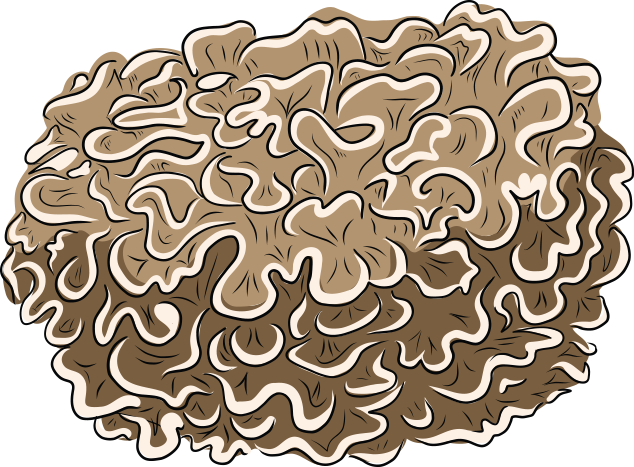Mushrooms as Medicine
Medicinal mushrooms have been used for centuries in traditional medicine practices. They are rich in bioactive compounds that have been shown to possess a wide range of therapeutic properties, including anti-inflammatory, immunomodulatory, and antitumor activities. The compounds present have also been shown to have a low toxicity profile and few adverse effects, making medicinal mushrooms a great candidate for holistic approaches to medicine. Below is a bit more information about some of the medicinal mushrooms that we offer.
Lions Mane
Lion's Mane mushroom (Hericium erinaceus) is a distinctive fungi with cascading white tendrils, resembling a lion's mane. Found in North America, Europe, and Asia, it's revered for it’s cognitive benefits. Compounds like hericenones and erinacines in Lion's Mane stimulate nerve growth, which enhances memory and focus. It offers neuroprotection, potentially guarding against brain cell damage, making it a great preventive measure for Alzheimer’s disease and other cognitive disorders. Lions mane can even influence mood regulation through neurotransmitters. This mushroom also has positive effects on digestion, anti-inflammatory capabilities, and supports a healthy immune system.
Lion's Mane and Microdosing: Both Lion's Mane and psychedelics like psilocybin have been explored for their potential neuroprotective properties. Some proponents suggest that combining Lion's Mane with microdosing psychedelics could potentially enhance the cognitive benefits associated with both substances. Lion's Mane's potential to support nerve growth factor production might synergize with the potential cognitive effects of microdosing.
Cordyceps
Cordyceps is a genus of parasitic fungi that has garnered attention for its medicinal properties and unique role in nature. Historically, Cordyceps Militaris has been used for its anti-inflammatory, antioxidant and hypoglacaemic properties, immunomodulation, stop spread of malignant cells, slow scarring of the lungs, diabetes, malaria, increase energy, as a neuroprotective, and for liver support. In traditional Chinese medicine, it is known as Dong Chong Xia Cao or Liang, and has been used to tonify the Kidney Yang, assist the Lung Yin, stop bleeding, resolve phlegm, back and knee pain, cough, dyspnea, impotence, wheezing, and bloody sputum. Modern research on Cordyceps has revealed a multitude of potential health benefits, like improving blood oxygen levels in turn increasing energy and enhancing performance.
Reishi
Ganoderma lucidum, commonly known as Reishi, is a revered mushroom deeply rooted in traditional medicine systems worldwide. In traditional Chinese medicine (Ling Zhi), it's celebrated as the "Elixir of Immortality". Historically, Reishi has been used for longevity, a more centered state of mind, immunological, neurological, metabolic, hepatic and vascular protection, for its heart-boosting properties, cough, to balance Qi, asthma, dizziness, insomnia, palpitation, shortness of breath, anxiety, restlessness, supporting healthy lung function, and to adapt to environmental stresses.
As Reishi becomes more studies, it is clear that this mushroom has quite a complex pharmacological makeup with over 120 different medicinal compounds discovered in the Lucidenic and Ganoderic acids that attribute these health benefits. To name a few, Lucidenic acids have the potential to treat hyperlipidemia, have neuro-protective anti-viral, and antioxidant properties.
Turkey Tail
Turkey tail (Trametes versicolor) is a mushroom renowned for its potential health benefits. This colorful mushroom, named for its striking resemblance to a turkey's tail feathers, is rich in bioactive compounds that contribute to its medicinal properties. A notable feature of turkey tail is its abundance of polysaccharopeptides, particularly the compound PSK (polysaccharide-K), which has been extensively studied for its immunomodulatory effects. These compounds are believed to stimulate the immune system, enhancing the activity of immune cells and promoting a robust defense against infections and illnesses. Turkey tail is also recognized for its potent antioxidant properties, as it contains phenols and flavonoids that help combat oxidative stress and inflammation in the body. Research suggests that the mushroom may play a role in supporting cancer patients undergoing conventional treatments, and ongoing studies explore its potential in cancer prevention. Additionally, turkey tail's prebiotic fibers may positively influence gut health by promoting the growth of beneficial bacteria.
Chaga
Chaga, scientifically known as Inonotus obliquus, is a type of fungus that grows primarily on birch trees in cold climates. Traditional medicine systems, particularly in Russia and Siberia, have long recognized the health benefits of chaga, and modern research is increasingly supporting their claims. Chaga has a very long list of health benefits, including immune system support, rich in antioxidants, anti-inflammatory properties, cancer-fighting, adaptogenic, antiviral and antibacterial properties, heart health, and liver support. However all of its benefits are virtually untapped due to a limited understanding of its mycochemical composition and bioactivities.
Traditionally and ritually chaga has been burned or smoked in pipes and has been used as a way to cleanse the lungs. The Khanty people of Western Siberia used chaga as a tea to wash and cleanse the body after menstruation. Chaga has also been known to be a treatment for tuberculosis, liver conditions, and stomach diseases such as gastritis and ulcers.
Maitake
Maitake mushrooms (Grifola frondosa), are renowned for both their culinary delight and exceptional healing properties and have been an integral part of Chinese and Japanese medicine for thousands of years. The name translates to "dancing mushroom" in Japanese. Maitake contains an impressive amount of alpha and beta-glucans, offering a wide range of health benefits. From supporting blood cholesterol to promoting a healthy gut flora. They also contain amino acids, B-vitamins, and minerals including copper, zinc and phosphorus. Various studies have described that G. frondosa can protect and proliferate neuronal cells through neurogenesis, antioxidative, anti-inflammatory, and anti-β-amyloid activities.
Maitake is particularly beneficial at supporting blood sugar balance and insulin sensitivity, decreasing inflammation in the body. As a result, it has helped to induce ovulation and ease menstrual cycle pain through regulation of hormones.
Sources
“Fungi, Folklore, and Fairyland.” The Public Domain Review, publicdomainreview.org/essay/fungi-folklore-and-fairyland.
Du, Bin, et al. “An Insight Into the Anti-inflammatory Properties of Edible and Medicinal Mushrooms.” Journal of Functional Foods, vol. 47, Aug. 2018, pp. 334–42. https://doi.org/10.1016/j.jff.2018.06.003.
Khan, Md. Asaduzzaman, et al. “Hericium Erinaceus: An Edible Mushroom With Medicinal Values.” Journal of Complementary & Integrative Medicine/Journal of Complementary and Integrative Medicine, vol. 10, no. 1, Jan. 2013, https://doi.org/10.1515/jcim-2013-0001.
Sheikha, Aly Farag El El. “Nutritional Profile and Health Benefits of Ganoderma Lucidum ‘Lingzhi, Reishi, or Mannentake’ as Functional Foods: Current Scenario and Future Perspectives.” Foods, vol. 11, no. 7, Apr. 2022, p. 1030. https://doi.org/10.3390/foods11071030.
Naguib, Adrina Mohamad, et al. “Maitake Medicinal Mushroom, Grifola Frondosa (Agaricomycetes), and Its Neurotrophic Properties: A Mini-Review.” International Journal of Medicinal Mushrooms, vol. 25, no. 2, Jan. 2023, pp. 11–22. https://doi.org/10.1615/intjmedmushrooms.2022046849.
“Medicinal Mushrooms Ophiocordyceps Sinensis and Cordyceps Militaris.” PubMed, pubmed.ncbi.nlm.nih.gov/36513520.
“Chaga Mushroom: A Super-fungus With Countless Facets and Untapped Potential.” Frontiers in Pharmacology, vol. 14, Dec. 2023, https://doi.org/10.3389/fphar.2023.1273786.






